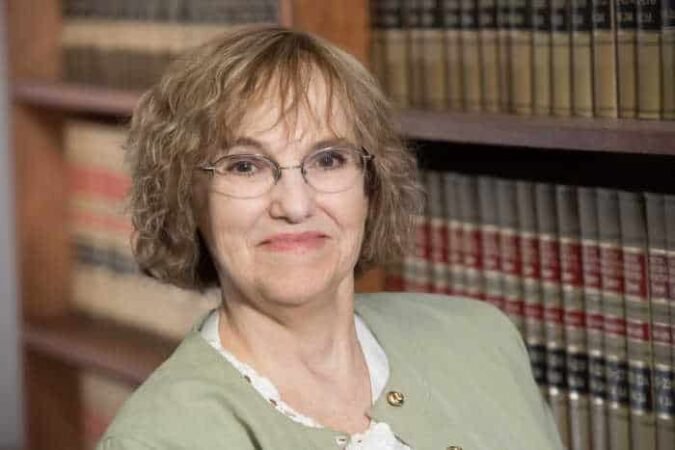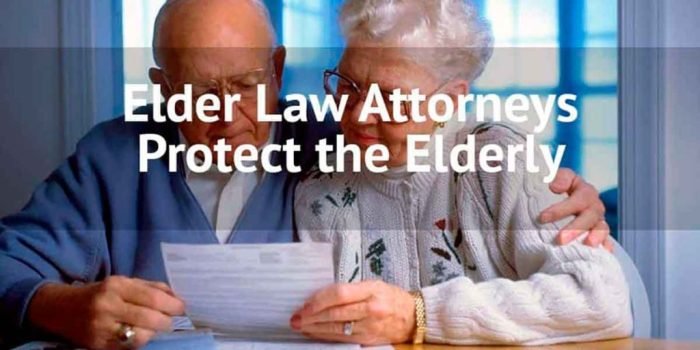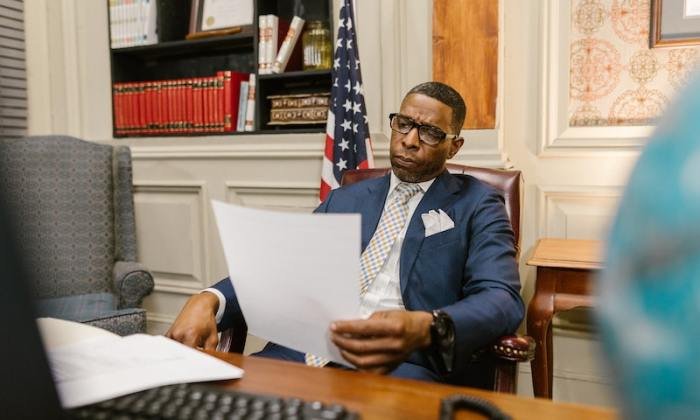
Navigating the complexities of aging can be challenging, especially when legal matters arise. In Broward County, Florida, seniors face unique legal hurdles concerning estate planning, healthcare decisions, and asset protection. Broward elder law attorneys provide specialized expertise to help seniors and their families navigate these intricate issues, ensuring their rights are protected and their wishes are fulfilled. This comprehensive guide explores the vital role of these attorneys and offers valuable insights into the services they provide.
From creating durable powers of attorney to planning for Medicaid eligibility and managing probate proceedings, these legal professionals offer a wide range of services tailored to the specific needs of older adults. Understanding the various legal areas they cover, such as estate planning, Medicaid planning, and probate, is crucial for making informed decisions and securing a comfortable and secure future. Choosing the right attorney is also paramount, requiring careful consideration of their experience, specialization, and client testimonials.
Understanding Broward Elder Law
Navigating the complexities of aging can be challenging, especially in a vibrant and rapidly developing area like Broward County, Florida. Elder law addresses the unique legal needs of seniors, encompassing a wide range of issues that require specialized knowledge and expertise. This section will explore the specific challenges faced by seniors in Broward County and the types of legal services available to help them.
Unique Legal Challenges Faced by Seniors in Broward County
Broward County’s diverse population and high cost of living present particular legal hurdles for its senior residents. The rising cost of healthcare, coupled with the increasing prevalence of age-related illnesses like Alzheimer’s disease and dementia, necessitates careful planning for long-term care. Additionally, the county’s significant real estate values create complexities in estate planning and property management. The influx of retirees and seasonal residents also adds to the demand for elder law services, creating a dynamic and complex legal landscape. Furthermore, navigating the intricacies of Florida’s Medicaid system and understanding the implications of power of attorney and guardianship can be particularly daunting for seniors and their families.
Types of Legal Services Offered by Broward Elder Law Attorneys
Broward elder law attorneys offer a comprehensive suite of legal services designed to protect the rights and well-being of their senior clients. These services often include estate planning, encompassing the creation of wills, trusts, and durable powers of attorney; Medicaid planning, assisting clients in qualifying for government assistance programs; probate and estate administration, managing the legal process of distributing assets after someone passes away; and guardianship and conservatorship, providing legal representation for individuals who require assistance with their personal and financial affairs. Many also provide advice on long-term care planning, including nursing home admissions and placement. Some attorneys specialize in elder abuse prevention and litigation, providing legal recourse for victims of financial exploitation or neglect.
Common Elder Law Issues Handled in Broward County
Common issues handled by Broward elder law attorneys include drafting and reviewing wills and trusts, planning for long-term care expenses, applying for Medicaid benefits, resolving disputes among family members regarding inheritance, managing the probate process, establishing guardianships or conservatorships, and addressing elder abuse and neglect cases. For example, a common scenario involves assisting a family in planning for the potential need for nursing home care, ensuring that assets are protected while still allowing access to necessary government assistance programs. Another frequent issue involves resolving disputes over wills or trusts, often involving complex family dynamics and significant financial stakes.
Comparison of Different Types of Elder Law Attorneys
While many elder law attorneys handle a broad range of cases, some may specialize in specific areas. Estate planning attorneys focus on creating and administering wills, trusts, and other estate planning documents. Medicaid planning attorneys specialize in helping clients qualify for Medicaid benefits while preserving their assets. Probate attorneys handle the legal process of administering estates after someone dies. It’s important to note that many attorneys may possess expertise in multiple areas, offering a comprehensive approach to elder law needs. The best approach is often to seek an attorney with experience relevant to the specific needs of the client and their family.
Finding the Right Attorney
Choosing the right elder law attorney in Broward County is crucial for navigating the complexities of estate planning, Medicaid applications, and other elder care issues. A well-informed decision can save you time, money, and significant stress. This section provides guidance on finding a lawyer who best suits your needs.
Questions to Ask Potential Attorneys
Before engaging an attorney, it’s essential to gather comprehensive information. Asking the right questions ensures you select a lawyer with the expertise and approach that align with your situation.
- Inquire about the attorney’s specific experience handling cases similar to yours (e.g., Medicaid planning, probate, estate administration).
- Clarify their fee structure, including hourly rates, retainer agreements, and any additional costs.
- Determine their availability and responsiveness, understanding how quickly you can expect communication and assistance.
- Ask about their approach to client communication and how they will keep you informed throughout the legal process.
- Understand their familiarity with Broward County’s specific legal landscape and relevant regulations.
Attorney Comparison Table
This table helps you organize information gathered from different consultations. Remember to fill it out completely for each attorney you consider.
| Attorney Name | Specialization | Fees | Contact Information |
|---|---|---|---|
| [Attorney Name 1] | [Specialization, e.g., Medicaid Planning, Estate Administration] | [Fee Structure, e.g., Hourly rate $300, Retainer Fee $5000] | [Phone Number, Email Address] |
| [Attorney Name 2] | [Specialization, e.g., Elder Abuse Litigation, Probate] | [Fee Structure, e.g., Contingency Fee, Hourly Rate $250] | [Phone Number, Email Address] |
| [Attorney Name 3] | [Specialization, e.g., Long-Term Care Planning, Guardianship] | [Fee Structure, e.g., Flat Fee, Hourly Rate $400] | [Phone Number, Email Address] |
Verifying Attorney Credentials and Experience
Thorough verification of an attorney’s credentials is paramount. This involves confirming their license to practice law in Florida, specializing in elder law, and reviewing their professional experience. You can verify licensing information through the Florida Bar Association website. Look for evidence of specialization through professional certifications, memberships in elder law organizations, and a strong track record of successful cases.
The Importance of Client Reviews and Testimonials
Client reviews and testimonials offer valuable insights into an attorney’s professionalism, communication style, and effectiveness. Websites such as Avvo, Martindale-Hubbell, and Google My Business often feature client reviews. While positive reviews are encouraging, also consider the overall pattern of feedback and address any negative reviews to understand the attorney’s response to challenges. Reading multiple reviews provides a more balanced perspective than relying on a single comment.
Key Legal Areas in Broward Elder Law

Navigating the complexities of aging often requires expert legal guidance. Broward County elder law attorneys specialize in several key areas designed to protect the rights and well-being of seniors and their families. Understanding these areas is crucial for proactive planning and effective problem-solving.
Durable Power of Attorney for Healthcare and Finances
A durable power of attorney (POA) is a legal document that allows you to designate a trusted individual to make healthcare and/or financial decisions on your behalf should you become incapacitated. This ensures your wishes are respected even if you are unable to communicate them directly. For healthcare, the POA will make decisions regarding medical treatment, including life-sustaining measures. For finances, the POA will manage your bank accounts, investments, and other assets. The process typically involves selecting your agent (the person you trust to make decisions), consulting with an attorney to draft the document reflecting your specific wishes, and having the document properly notarized and witnessed. Careful consideration should be given to selecting a responsible and trustworthy agent who understands your values and preferences. The attorney will guide you through the legal requirements and ensure the document is legally sound and enforceable in Broward County.
Medicaid Eligibility Planning in Broward County
Planning for Medicaid eligibility in Broward County requires careful consideration of asset protection strategies. Medicaid is a government program providing healthcare coverage to low-income individuals, including seniors. However, eligibility criteria are stringent and require detailed financial planning. Steps involved may include asset transfers, establishing trusts, and exploring other legal strategies to meet the eligibility requirements while preserving assets for family members. This often involves a complex interplay of state and federal regulations, necessitating the expertise of an elder law attorney familiar with the intricacies of Broward County’s Medicaid program. For example, an attorney can advise on the appropriate timing and methods for transferring assets to avoid penalties and ensure a smooth application process. They can also help navigate the often-confusing application process itself.
Probate Proceedings and Their Implications
Probate is the legal process of administering a deceased person’s estate. This involves identifying and valuing assets, paying debts and taxes, and distributing the remaining assets to heirs according to the will or state intestacy laws. Probate proceedings can be time-consuming and expensive, particularly for larger or complex estates. They can also be emotionally challenging for grieving families. Understanding the probate process and its implications is crucial for planning an efficient and cost-effective distribution of assets. An experienced elder law attorney can guide families through the complexities of probate, ensuring a smooth and legally compliant process. They can also help resolve disputes among heirs and minimize potential delays or legal challenges. For instance, an attorney can help determine if a will is valid, interpret its provisions, and represent the estate’s executor or beneficiaries in court.
Estate Planning Strategies: Wills, Trusts, and Gifting
Effective estate planning is essential for protecting assets and ensuring a smooth transfer of wealth to loved ones. This involves utilizing various legal tools, including wills, trusts, and gifting strategies. A will is a legal document outlining how your assets will be distributed after your death. A trust is a legal entity that holds and manages assets for the benefit of beneficiaries. Gifting strategies involve transferring assets during your lifetime to reduce estate taxes and provide financial support to family members. The choice of strategy depends on individual circumstances, financial goals, and family dynamics. An experienced elder law attorney can help you develop a comprehensive estate plan tailored to your specific needs and objectives, considering factors such as tax implications, asset protection, and family dynamics. They can assist in drafting wills, establishing trusts, and structuring gifts to maximize the benefits and minimize potential risks. For example, an attorney can help create a testamentary trust to manage assets for minor children or a special needs trust for a disabled beneficiary.
Common Legal Issues and Solutions

Navigating the complexities of elder law in Broward County often involves addressing a range of challenging legal issues. Understanding the potential problems and available solutions is crucial for protecting the well-being and financial security of elderly loved ones. This section Artikels some common legal issues and explores practical strategies for resolution.
Elder Abuse and Neglect Legal Implications
Elder abuse and neglect constitute serious crimes with significant legal ramifications in Broward County. These acts can encompass physical, emotional, or financial exploitation, as well as neglect resulting in harm or endangerment. Victims are entitled to legal recourse, including the possibility of criminal prosecution against the abuser, civil lawsuits for damages, and the establishment of protective measures such as guardianship or conservatorship to prevent further harm. The severity of penalties depends on the nature and extent of the abuse or neglect, with potential consequences ranging from fines and probation to lengthy prison sentences. The Broward County State Attorney’s Office actively prosecutes these cases, and victims should seek legal counsel immediately to initiate appropriate action. Legal assistance can help secure necessary documentation, gather evidence, and navigate the complex legal processes involved in seeking justice and obtaining compensation for damages.
Resolving Disputes Over Guardianship and Conservatorship
Disputes regarding guardianship and conservatorship often arise when family members disagree on the best course of action for an incapacitated elder. These legal proceedings aim to appoint a suitable guardian or conservator to manage the individual’s personal care and/or finances. Disputes can center on the suitability of potential guardians or conservators, the scope of their authority, or the best interests of the incapacitated person. Resolving these disputes typically involves petitioning the court for a determination. This process might include presenting evidence of the individual’s capacity, the needs of the elder, and the qualifications of potential guardians or conservators. Mediation can be a valuable tool in resolving these disputes amicably, reducing the need for protracted and potentially costly litigation. If mediation fails, a judge will make a determination based on the evidence presented. A skilled elder law attorney can represent the interests of the elder or family members involved, ensuring their rights are protected throughout the legal process.
Protecting Assets from Creditors and Nursing Home Costs
Preserving assets for elderly individuals facing significant medical expenses, such as those associated with nursing home care, is a major concern. Strategies for asset protection include utilizing legal tools such as trusts, which can help shield assets from creditors and Medicaid spend-down requirements. Proper estate planning, including the establishment of a well-structured trust, is crucial in minimizing the impact of nursing home costs on an individual’s estate. However, it’s important to note that these strategies must be implemented legally and ethically; fraudulent transfers of assets to avoid Medicaid eligibility can lead to significant legal penalties. A knowledgeable elder law attorney can guide individuals through the complexities of asset protection planning, ensuring compliance with all applicable laws and regulations. Careful consideration must be given to individual circumstances, including the nature and extent of assets, anticipated long-term care needs, and family dynamics.
Managing the Complexities of Long-Term Care Planning
Long-term care planning requires careful consideration of various factors, including the individual’s health status, financial resources, and personal preferences. This involves assessing potential long-term care needs, exploring available options (such as home care, assisted living, or nursing homes), and developing a comprehensive plan to address these needs while protecting assets. The plan should encompass legal documents such as advance directives (living wills and durable powers of attorney for healthcare) and financial documents (trusts and wills). It’s essential to understand the costs associated with various long-term care options and to explore available financial resources, including government programs like Medicaid. Regular review and updates to the long-term care plan are crucial, as circumstances can change over time. A proactive approach to long-term care planning minimizes stress and ensures that the individual’s wishes are respected and their well-being is secured. For instance, a family might establish a trust to fund long-term care while preserving assets for heirs, demonstrating a practical application of this planning.
Resources and Support for Seniors
Navigating the complexities of aging can be challenging, but Broward County offers a wealth of resources designed to support seniors and their families. These resources provide crucial assistance in areas ranging from financial aid to healthcare and social services. Understanding the available options is key to ensuring a comfortable and fulfilling life in later years.
Available Resources for Seniors in Broward County
Finding the right resources can significantly improve the quality of life for seniors and their caregivers. The following list provides a starting point for exploring the many options available in Broward County. It is important to note that this list is not exhaustive, and further research may be necessary to find the most appropriate services for individual needs.
- Area Agency on Aging of Broward County (AAA): Provides a wide range of services, including information and referral, case management, caregiver support, and assistance with accessing benefits.
- Broward County Health Department: Offers various health services for seniors, such as vaccinations, health screenings, and disease prevention programs.
- Florida Department of Elder Affairs: A state agency that provides information and resources for older adults and their families, including assistance with long-term care, benefits, and legal issues.
- Senior Centers: Numerous senior centers throughout Broward County offer social activities, meals, and health programs.
- Non-profit Organizations: Many local non-profit organizations provide specialized services for seniors, such as Meals on Wheels, transportation assistance, and adult day care.
- Legal Aid Services of Broward County: Offers free or low-cost legal assistance to seniors with limited income.
Financial Assistance Programs for Elder Care: An Infographic Description
This infographic would visually represent the different financial assistance programs available for elder care, making it easy to understand at a glance.
The infographic would have a title: “Financial Assistance for Elder Care in Broward County”. A central image might depict a supportive hand reaching towards a senior citizen.
Sections:
* Medicare: A section would explain Medicare coverage for seniors, including Part A (hospital insurance), Part B (medical insurance), Part D (prescription drug insurance), and Medicare Advantage plans. It would also highlight the importance of understanding Medicare’s limitations and supplemental insurance options.
* Medicaid: This section would detail Medicaid eligibility requirements and benefits, emphasizing its role in covering long-term care costs for low-income seniors. It would include information on how to apply and the documentation needed.
* Supplemental Security Income (SSI): This section would explain SSI eligibility and benefits, focusing on its role in providing financial assistance to seniors with limited income and resources.
* Veterans Benefits: This section would highlight the various veterans’ benefits available to eligible seniors and their spouses, such as healthcare through the VA and pension programs.
* Reverse Mortgages: This section would explain how reverse mortgages can provide access to home equity without selling the home, outlining the potential benefits and risks.
* Long-Term Care Insurance: This section would discuss the role of long-term care insurance in helping cover the high costs of nursing homes and assisted living facilities, highlighting the importance of purchasing this insurance well in advance.
Each section would use clear icons, concise text, and possibly a color-coded system to differentiate the various programs.
The Importance of Early Legal Advice in the Aging Process
Seeking legal advice early in the aging process allows individuals to proactively plan for their future needs and avoid potential legal complications. This includes creating or updating estate plans, such as wills and trusts, to ensure assets are distributed according to their wishes. Early planning also facilitates the smooth transfer of property and assets, minimizing potential family disputes. Moreover, it enables individuals to understand their rights and options concerning healthcare decisions, long-term care, and government benefits.
Benefits of an Experienced Elder Law Attorney
An experienced elder law attorney possesses specialized knowledge in navigating the complex legal issues that arise during the aging process. They can assist with estate planning, long-term care planning, Medicaid applications, veterans’ benefits, and resolving disputes related to elder abuse or guardianship. Their expertise can significantly reduce stress and ensure the client’s rights and interests are protected. Furthermore, they can provide valuable guidance and support, helping seniors and their families make informed decisions about their future.
Wrap-Up

Securing the future for yourself and your loved ones requires proactive planning and the guidance of experienced professionals. Broward elder law attorneys play a critical role in helping seniors and their families navigate the complexities of aging gracefully and with peace of mind. By understanding the legal landscape and seeking expert advice early, individuals can effectively manage their assets, ensure their healthcare wishes are honored, and create a legacy that reflects their values and intentions. Remember, proactive planning empowers you to navigate the challenges of aging with confidence and control.
FAQ
What is the average cost of hiring a Broward elder law attorney?
Fees vary widely depending on the attorney’s experience, the complexity of the case, and the services required. It’s best to schedule consultations to discuss fee structures.
How do I find an attorney who specializes in a specific area of elder law, such as Medicaid planning?
Many attorney websites and online directories allow you to search by specialization. You can also contact the Florida Bar Association for referrals.
What documents should I bring to my initial consultation with an elder law attorney?
Bring any relevant documents related to your assets, healthcare directives, and family history. The attorney will guide you on what’s needed.
Can an elder law attorney help me with long-term care planning?
Yes, they can assist with planning for long-term care, including navigating Medicaid and Medicare benefits and protecting assets.




